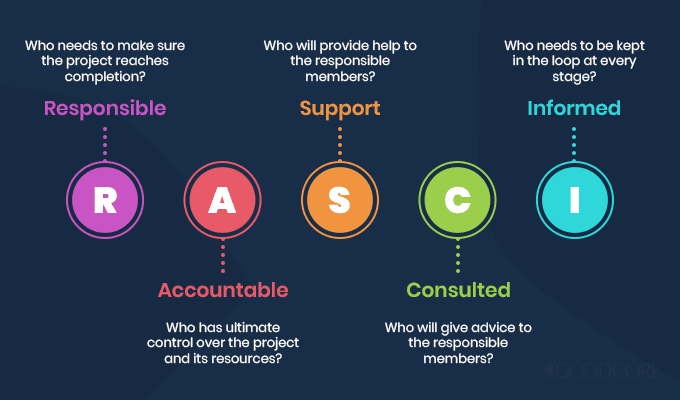RACI vs RASCI: Clarifying roles in project and program delivery
- lorenaflorian0
- Jul 23
- 3 min read
Updated: Jul 29

In the world of project management, clarity is king. When roles and responsibilities are ambiguous, projects stall, stakeholders disengage, and accountability fades. That’s where tools like RACI and RASCI come in—simple yet powerful frameworks that help teams define who does what, when, and why.
But what’s the difference between RACI and RASCI? And when should you use one over the other?
What is RACI?
Responsible – The person(s) doing the work.
Accountable – The one ultimately answerable for the outcomes of benefit.
Consulted – Those whose input is sought.
Informed – Those who need to be kept in the loop.
It’s a tried-and-tested model that helps project managers assign clear roles across tasks, deliverables, and decisions.
Enter RASCI: Adding the 'S'
RASCI adds one more role:
Supportive – Individuals who assist the Responsible party in completing the task.
This subtle addition can make a big difference in complex projects. It acknowledges contributors who aren’t leading the task but are essential to its success—think subject matter experts, technical leads, or business analysts.

Why Use RASCI?
RASCI is particularly useful when:
Projects involve cross-functional teams.
Tasks require hands-on help beyond the primary Responsible person.
You want to recognise and plan for collaborative effort.

RACI vs RASCI: Which Should You Use?
Criteria | RACI | RASCI |
Simplicity | ✔️ | ❌ (slightly more complex) |
Best for small teams | ✔️ | ❌ |
Best for large, cross-functional teams | ❌ | ✔️ |
Highlights collaboration | ❌ | ✔️ |
Recognises supporting roles | ❌ | ✔️ |

Applying RASCI Across the DELIVER Phases
The DELIVER framework at PMLogic stands for Discover, Examine, Lessons Learned, Implement, Validate, Evaluate, and Reinforce. Applying the RASCI model at each phase ensures clarity of roles, supports collaboration, and strengthens governance.
Discover
Responsible: Program/Project Manager, Product Manager
Accountable: Sponsor
Supportive: PMO
Consulted: Key stakeholders, strategic advisors
Informed: Wider organisation, impacted business units
Examine
Responsible: Design Authority, Business Analysts
Accountable: Program/Project Manager
Supportive: Subject Matter Experts, Technical Architects
Consulted: Operational teams, Change Leads
Informed: Governance boards, delivery partners
Lessons Learned
Responsible: PMO, Project Managers
Accountable: Sponsor or Program Manager
Supportive: Business Analysts
Consulted: Delivery teams, sponsors
Informed: Steering Committee
Implement
Responsible: Workstream leads, Program Manager
Accountable: Project Managers, delivery leads
Supportive: Change agents, trainers, IT support
Consulted: Business units, end users
Informed: Sponsors, PMO
Validate
Responsible: Test Leads, Quality Assurance
Accountable: Sponsor/Program Manager
Supportive: Technical teams
Consulted: Business owners
Informed: Governance boards
Evaluate
Responsible: Business Analysts, PMO
Accountable: Sponsor
Supportive: Finance, Benefits Manager
Consulted: Stakeholders
Informed: Steering Committee
Reinforce
Responsible: Product Manager, Operational leads
Accountable: Sponsor/Product owners
Supportive: HR, communications, coaching teams
Consulted: End users, Benefits Owners
Informed: Steering Committee, external partners

Applying the 5Ps with RASCI
At PMLogic, we align the RASCI model with our 5Ps framework to ensure clarity and accountability throughout delivery:
Purpose – RASCI helps define clear roles aligned to the strategic intent of the project or program.
People – It ensures the right individuals are engaged, supported, and informed at every stage.
Practice – RASCI is embedded into our delivery practices to drive consistency and governance.
Platform – We use fit-for-purpose tools and systems to manage and communicate RASCI matrices effectively.
Performance – By clarifying responsibilities, RASCI supports accountability and enables performance tracking.

.png)



Comments